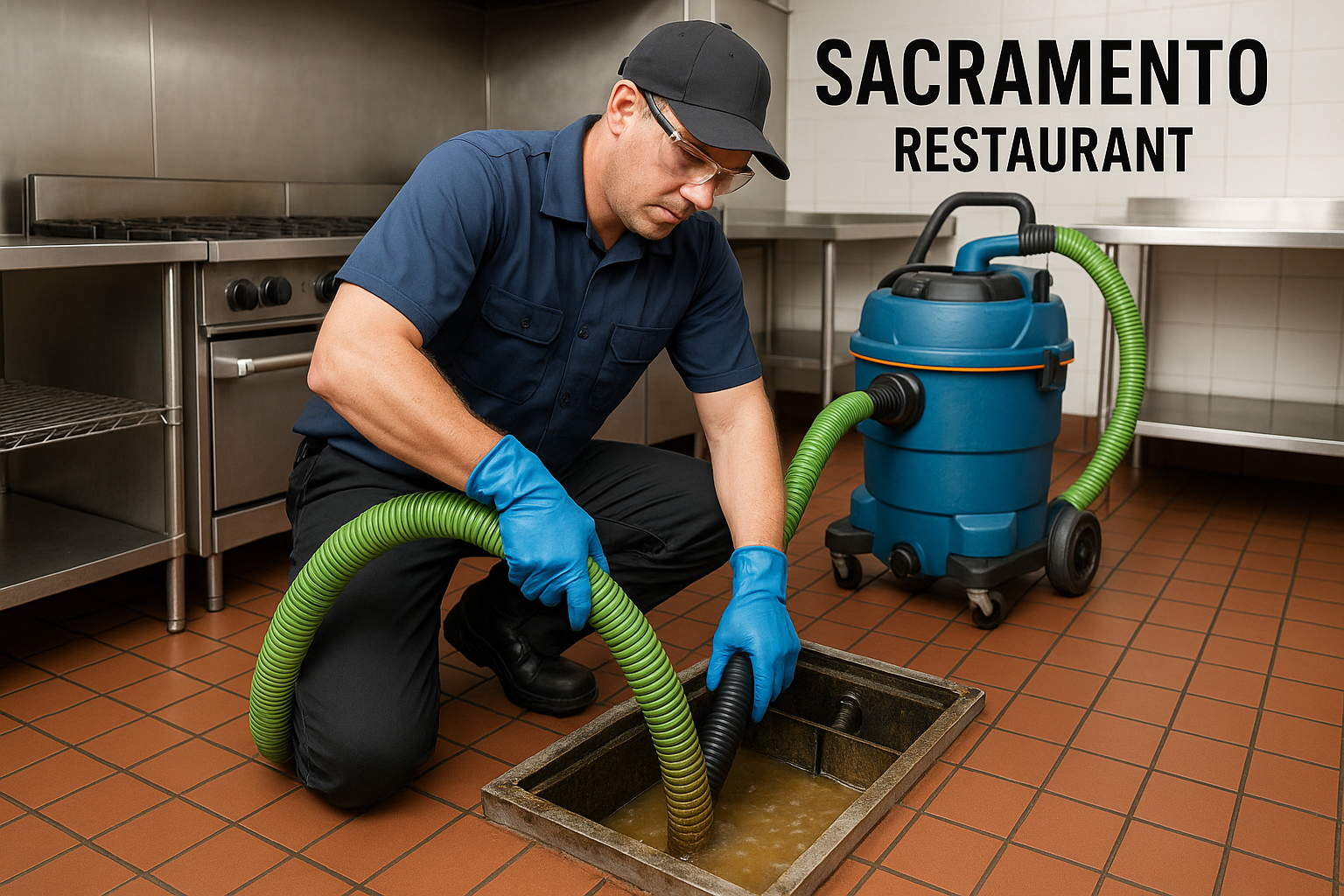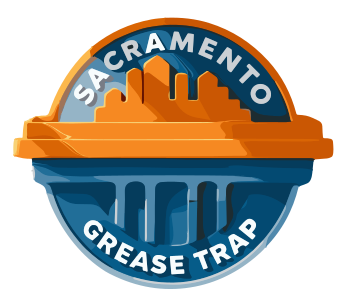How to Choose the Best Grease Trap Cleaning Service

The Importance of Hiring the Right Grease Trap Cleaning Company
Choosing the right grease trap cleaning service in Sacramento is more than a routine vendor decision: it’s protection for your business, staff, and customers. When a trap fails, the result can be costly plumbing emergencies, unpleasant odors, surprise inspections, and fines for violating FOG (fats, oils, grease) rules. A dependable provider reduces downtime, ensures legal disposal, and gives you the documentation needed during regulatory checks.
Not all providers are created equal. Equipment, procedures, disposal practices, compliance documentation, and response times vary widely. This guide explains what to look for so you can select a company that delivers consistent, safe, and cost-effective grease trap cleaning services.
Why Choosing the Right Grease Trap Company Matters
A quality provider impacts your operation in key ways:
- Reduces the risk of backups and overflows.
- Ensures compliance with Sacramento wastewater and FOG regulations.
- Improves kitchen efficiency by preventing recurring clogs.
- Extends the life of your grease interceptor and plumbing.
Hiring inexperienced or under-equipped technicians often leads to incomplete cleanings and higher long-term grease trap cleaning cost. Choosing a reputable company means fewer emergency calls and a lower total cost of ownership for your grease management program.
How to Choose the Best Grease Trap Cleaning Service in Sacramento
1) Verify Experience and Local Compliance Knowledge
Look for companies with years of experience servicing restaurants and commercial kitchens. Technicians familiar with Sacramento’s FOG rules will avoid common compliance pitfalls and can recommend an optimal service cadence based on your operation. Ask prospective providers about local cases they’ve handled and whether their crews are trained in regional environmental requirements.
For regulatory context and how FOG impacts public systems, many operators review guidance from the EPA when evaluating service standards.
2) Insist on Clear, Detailed Documentation After Every Service
A professional grease trap cleaning service should provide a complete post-service packet: inspection reports, before-and-after photos, waste manifests, and recommendations. These documents protect you during health department visits and help you track long-term maintenance. Providers who do not issue clear records may be cutting corners.
3) Compare Equipment and Thoroughness of Cleaning Methods
Not all cleanings are thorough. The best companies pump all liquids and solids, scrape walls and baffles, inspect inlet/outlet lines, and confirm proper flow after service. Ask whether they use high-performance vacuum trucks, hydro-jetting, and video inspections. Avoid providers who only skim the liquid layer and leave hardened grease behind — that leads to rapid re-accumulation and higher grease trap maintenance needs.
If you appreciate structured processes and checklists, industry articles from operations experts at Smartsheet and HubSpot can illustrate the value of standardized workflows and reporting.
4) Confirm Availability and Fast Response Times
Restaurants can’t wait days for emergencies. Choose a company that offers flexible scheduling, emergency response, and after-hours service if needed. Providers that issue automated reminders and keep predictable routes help you avoid missed cleanings that cause violations.
5) Evaluate Pricing Transparency and Value
Compare quotes for clarity, not just bottom-line price. The best providers offer transparent pricing with no hidden fees, a clear description of services included, and an honest recommendation for optimal cleaning frequency. Ask for written service agreements that outline pricing, frequency, and disposal methods so you know exactly what you’re paying for.
6) Verify Proper Disposal Practices and Environmental Responsibility
A top provider uses certified haulers and documents every disposal. Ensure your vendor works with approved processing facilities and can produce waste manifests proving legal handling. Environmentally responsible companies often recycle FOG into biofuel or other products, which reduces landfill impact and supports sustainability goals.
For legal and business impacts related to waste handling and licensing, small-business operators often consult resources from the Small Business Administration and local state guidance.
7) Ask About Insurance, Licensing, and References
Always verify that the company carries liability insurance, proper hauler licensing, and worker certifications. Request references and case studies from similar restaurants or food-service facilities. A reputable provider will readily supply contactable references and proof of compliance.
8) Consider Value-Added Services and Education
Top companies provide more than pumping: they help you optimize service intervals, train staff on FOG prevention, and offer preventative maintenance solutions. Look for providers who offer training materials or on-site staff coaching so you can reduce grease trap cleaning cost over time through better daily practices.
Real-World Use Cases and Results
- A fast-casual restaurant reduced emergency calls by 40% after switching to monthly inspections and receiving digital reports.
- A commissary kitchen optimized pumping frequency by analyzing peak production hours, eliminating unexpected downtime.
- A small café avoided FOG violations after implementing staff training in tandem with a scheduled service plan.
These examples show how a partnership-focused provider transforms grease management from a liability into a predictable maintenance task.
Common Questions When Hiring a Grease Trap Company
How often should I schedule a grease trap cleaning service?
Most Sacramento restaurants need service every 1–3 months, but high-frying operations may need more frequent grease trap pumping. Use the 25% rule: clean when the trap reaches one-quarter full of FOG.
What should be included in a cleaning report?
A good report includes before-and-after photos, pump volumes, disposal manifests, notes on baffles or structural issues, and recommendations for future frequency.
Can I handle cleaning in-house?
Small under-sink traps can sometimes be inspected in-house, but full interceptor pumping requires certified equipment and proper waste disposal handled by licensed haulers.
How much does grease trap cleaning cost?
Grease trap cleaning cost varies by trap size, accessibility, and frequency. Choose value and compliance over lowest bid, since inadequate cleanings often lead to higher long-term expenses.
What else should I ask a prospective provider?
Ask about emergency response times, how they document disposal, whether they provide reminders, and if they offer staff training on FOG prevention.
Best Practices for Long-Term Grease Trap Health
- Prioritize communication and transparent reporting from your provider.
- Choose flexible scheduling with emergency support.
- Verify eco-friendly disposal and certified haulers.
- Keep a digital cleaning log and retain records for inspections.
- Train staff on simple daily habits that reduce grease volume.
For practical guidance on maintaining service frequency and FOG prevention, many local operators review Sacramento-specific recommendations such as those contained in the city’s FOG Best Practices and consult the local guide on how often to clean a grease trap.
Making the Smart Choice for Your Kitchen
Selecting the right grease trap cleaning service Sacramento means picking a partner who offers reliable equipment, clear documentation, environmental compliance, and flexible scheduling. When you evaluate providers against the criteria above, you’ll find a company that protects your business, reduces costs over time, and keeps kitchen operations running smoothly.

Let Us Simplify Your Grease Trap Maintenance.
Proper grease trap maintenance will reduce costly repairs in the future.
.avif)

